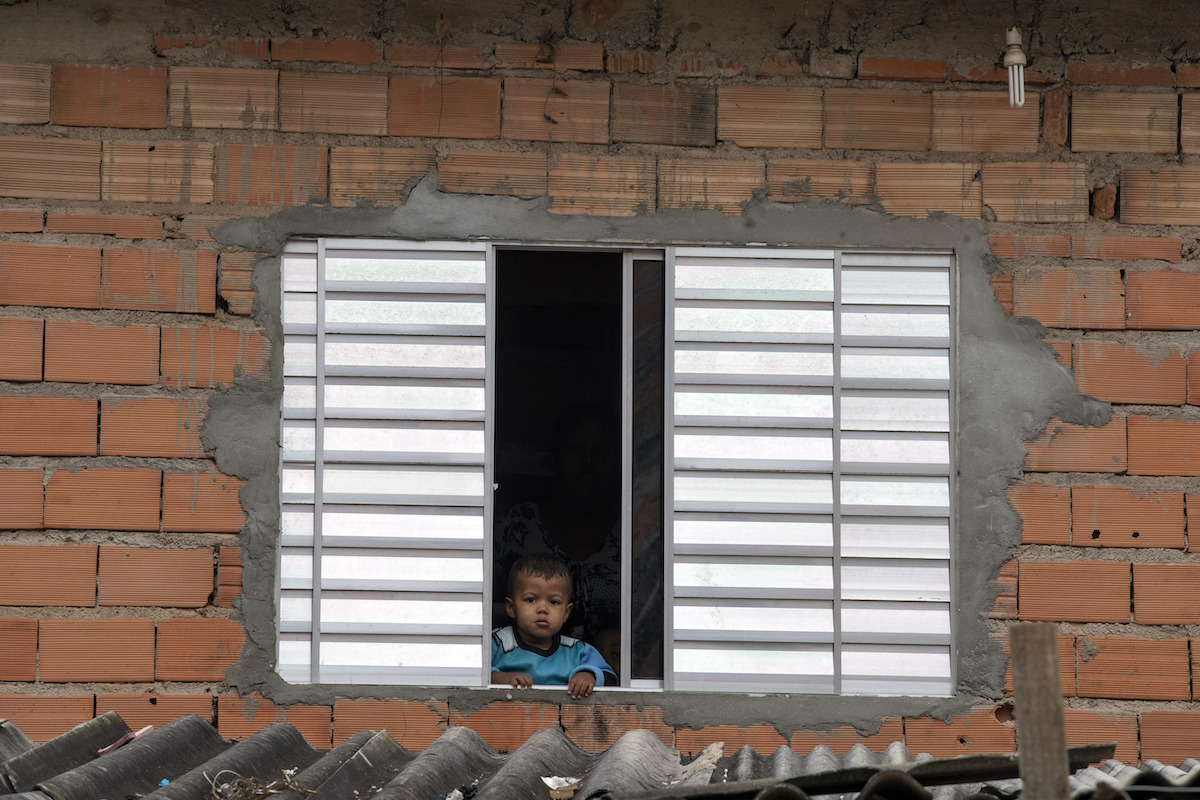

A boy looks on from his window during a quarantine imposed by the the state government to help curb the spread of the new coronavirus in São Paulo, Brazil, Wednesday, April 8, 2020. (AP Photo/Andre Penner)
By DAVID BILLER, Associated Press
RIO DE JANEIRO (AP) — A teenager from the Yanomami indigenous tribe has been killed by the new coronavirus in Brazil, the Health Ministry said Friday, raising alarm about the spread of the virus into protected lands.
The 15-year-old, from a village within the Yanomami indigenous territory, had been hospitalized in an intensive care unit in Roraima state’s capital since April 3, according to the government. The ministry said late Friday that COVID-19 was the cause of his death, and he is the first resident of an indigenous territory to succumb to the disease.
The teen moved from his home village roughly a year ago to another village to study, said Dário Kopenawa Yanomami, vice-president of the Hutukara association, which represents the ethnic group.
The teen was hospitalized in March, but doctors released him. His health deteriorated when he was returning to his village and, after about a week there, he was airlifted to a hospital, Kopenawa said. In a statement on Friday, the Hutukara association alleged careless and inadequate medical attention.
“I am feeling very sad,” Kopenawa said. “He had a lot of fight left, a long life. But this happened.”
Many of Brazil’s indigenous groups in the Amazon have effectively retreated into their territories. The concern is that the teen’s death is a harbinger of more cases as the virus still manages to permeate their lands, where communal living can facilitate contagion and proper medical care is remote.
Indigenous people within protected territories have their own public healthcare provider, Sesai, which has created a “crisis cabinet” to oversee handling of the virus response. As of April 8, Sesai had reported six cases of COVID-19 among indigenous people and zero deaths. The system doesn’t treat grave cases, which are redirected to the strained public healthcare system.
In Amazonas, home to more indigenous people than any other state, the health secretary said this week that 95% of intensive care beds were already occupied. The Health Ministry’s weekly epidemiological report showed Amazonas with the greatest incidence of the COVID-19 disease, at 19 per 100,000 residents, although its total number of cases remains a fraction of the hotspot in Sao Paulo.
For most people, the new coronavirus causes mild or moderate symptoms, such as fever and cough that clear up in two to three weeks. For some, especially older adults and people with existing health problems, it can cause more severe illness, including pneumonia and death.
Roughly half of Brazil’s indigenous people no longer live in protected lands, according to Marco Paulo Schettino, an anthropologist. Historical reasons include encouragement to assimilate, expulsion from their lands or not having lands recognized by the government, and the lure of healthcare, education and money.
However, many urbanized indigenous people frequently travel back to ancestral lands, and so can transmit the virus, said Schettino, executive secretary at Brazil’s public prosecution office responsible for indigenous affairs.
Public prosecutors have pressured the Health Ministry to direct resources to infrastructure, including construction of barriers and field hospitals, according to Antônio Carlos Bigonha, the office’s lead prosecutor.
“We have to maintain the villages’ isolation, maintain the communities in quarantine so they aren’t contaminated with the virus and it isn’t disseminated,” Bigonha said by phone from Brazil’s capital, Brasilia.
Sesai has a sanitary unit in charge of Yanomami territory and is responsible for 28,000 people in 363 villages. It has isolated and is monitoring several people who were in contact with the deceased teen, and dispatched COVID-19 tests to the area, according to the unit’s coordinator, Francisco Dias.
Hutukara in its statement said the boy’s village remains vulnerable to contagion from the thousands of illegal gold prospectors traveling upriver. Meantime, his parents are in mourning in the state capital, according to Kopenawa.
“They want to bring his body back to his land, where he was born, where he grew up,” Kopenawa said. “On the other hand, there’s a bit of danger of transmitting the sickness to the community.”


